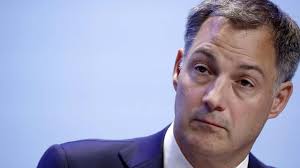Belgium’s political landscape witnessed a seismic event as Alexander De Croo, the country’s Prime Minister, announced his resignation following a significant setback for his party in the national and European parliamentary elections. The news, reported by CNN, sent shockwaves through Brussels, where the 48-year-old leader delivered his emotional address.
The Resignation
In a poignant moment, Alexander De Croo struggled to contain his emotions as he tendered his resignation in Brussels on Sunday night. The defeat of his party in both national and European elections prompted this unexpected turn of events, marking a pivotal moment in Belgian politics.
Impact on Belgium
Political Turbulence
De Croo’s resignation signals a period of political turbulence in Belgium. With the departure of the Prime Minister, questions arise about the stability of the government and the future direction of the country’s leadership.
Uncertainty Ahead
The vacuum left by De Croo’s resignation leaves Belgium in a state of uncertainty. The need to appoint a new Prime Minister and navigate the aftermath of the elections adds complexity to an already challenging political landscape.
Reactions and Speculations
Public Response
The news of De Croo’s resignation has elicited varied responses from the public, with some expressing concern over the implications for Belgium’s governance and others viewing it as an opportunity for change.
Speculations About Succession
As Belgium grapples with the aftermath of De Croo’s resignation, speculations abound regarding who will step into the role of Prime Minister and how this transition will impact the country’s political trajectory.
Alexander De Croo’s resignation marks a turning point in Belgium’s political narrative. As the country navigates the aftermath of the elections and prepares for a new chapter in its leadership, the eyes of the nation remain fixed on the path forward.




